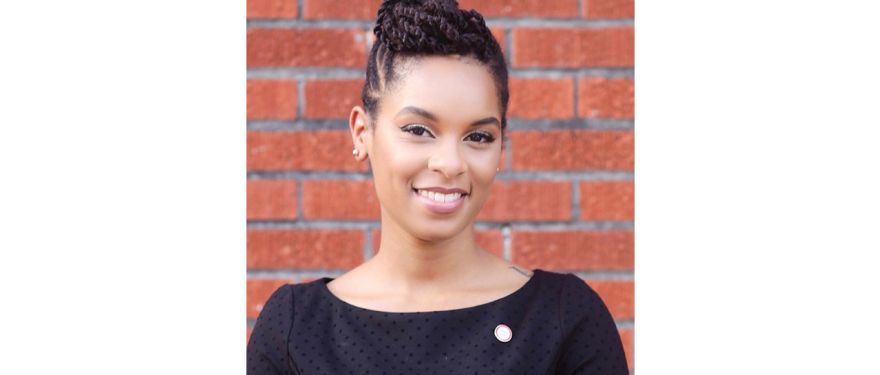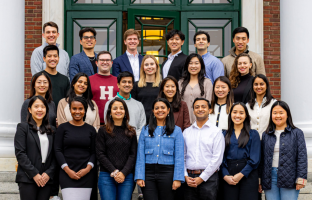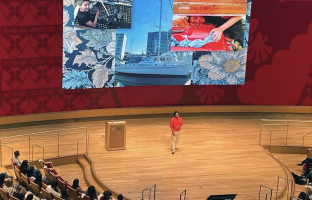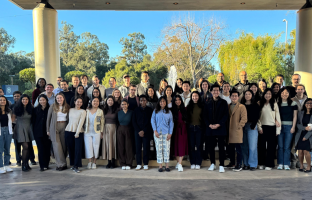A few years ago, Kenya Hunt, HBS MBA 2019, was working full-time on an offshore oil rig – two weeks on, two weeks off – when she realized that “by eight months in, I knew this wasn’t for me.” Her role really did not fit her particular engineering skill set, and culturally, being one of only three women, and the only woman of color, on the rig, the social context proved difficult. She asked herself two questions: “how did I get here?” And more importantly, “where do I go next?”
The first answer proved easier to find. “In high school, I loved chemistry,” Kenya says, “but I didn’t know what kind of job that could lead to.” Her parents suggested chemical engineering. “I thought it would be a good way to get through college and become self-sufficient.”
At first, the plan seemed sound. An undergraduate internship with Chevron became the foundation for her first position after graduation, fulfilling engineering duties on a blow-out prevention team, a role that had acquired considerably more significance after the BP oil spill in the Gulf of Mexico. “It’s a cool area,” Kenya says. “Deep water is like space – lots of unexplored territory. I thought it was a good opportunity, yet I was very passive: the opportunity came and I took it.”
But as oil prices plummeted from $110/barrel to just $40, advancement opportunities dried up and Kenya’s career pathway became much less certain. Meanwhile, she embraced a new hobby to occupy her stints on dry land: cosmetics. She developed her own distinctive makeup kit, and created a YouTube channel dedicated to application techniques.
“I considered it something I just like to do, not a job,” says Kenya. Years earlier, in a middle school dance class, she had discovered the power of sophisticated makeup. Now, she was reminded of what she appreciated most: “It’s a technical process that is also very creative.” Over time, her part time hobby became a genuine career ambition. “I wanted to do something that smashed technique and creativity together.”
Research leads to rewards
Applying the same diligence she had used to obtain her engineering degree, Kenya dove into career research, confident that there was a cosmetics firm out there that would appreciate her ability to conduct R&D – a foot in the door that could lead to more advanced executive positions. She learned that two major firms dominated the market, and that one of them, Estée Lauder, ran a “Presidential Management Associates” rotational leadership program. “It looked perfect,” Kenya says, “but it required an MBA. I had found the job I wanted, and I pursued the MBA to get it.”
Kenya came to HBS with a precise goal in mind. For her, the HBS experience proved transformative. “It’s the professional polish,” she says. “The passion I had for the space [cosmetics], and the perspective I had gained as a makeup artist made me qualified, but the polish helped me communicate what I needed to relay. I wouldn’t have been able to present my my ideas or my strengths clearly without the intense practice of the case study method. The obligation to have something meaningful to say every day, to hear other viewpoints every day, to defend or revise my perspective every day – it’s absolutely invaluable!”
Her own confidence, of course, took the lead. When it came time to fulfill an internship between her first year and second year at HBS, she stuck to her goal. “I turned down two offers to wait for Estée Lauder.” In her interview, she made her passion crystal clear, telling the team that “the past five years of my life have led to this moment.”
On the last day of the internship itself, Estée Lauder made the offer – Kenya was invited into the leadership program. “I cried for three days straight – it felt so lofty! In the beginning, it seemed impossible, but I knew if I didn’t try, I’d still be there, sitting on an oil rig.”





.png&w=80&h=80)

.png&w=80&h=80)